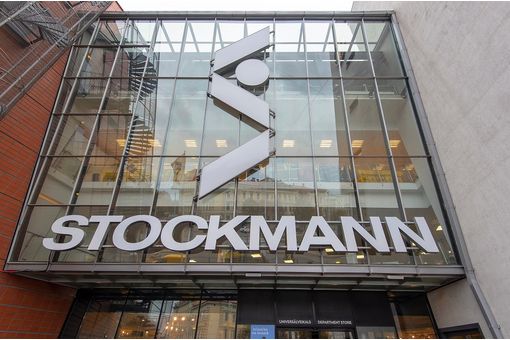Interviews
NRF appreciates senator's view on garment trade under TPP
03 May '12
3 min read
The National Retail Federation applauded a bipartisan letter from fifteen members of the Senate that urged President Obama to support more flexible trade rules on textile and apparel goods in the current negotiations on a Trans-Pacific Partnership free trade agreement.
The letter follows a similar bipartisan communication to the President from thirty Members of the House last October that urged U.S. trade negotiators to reconsider its support for restrictive rules limiting textile and apparel trade based on the so-called “yarn-forward” rule of origin.
“We are reaching critical mass to reform the onerous yarn-forward rule, which protects one industry at the expense of consumers, retailers, and the promotion of new trade, investment and economic growth,” NRF Vice President and International Trade Counsel Erik Autor said.
“There is now strong bipartisan and bicameral support for more progressive and realistic rules-of-origin standards in the TPP negotiations and other trade agreements that are more consistent with the Administration's goal of making the TPP a 21st Century trade agreement.”
“The United States Trade Representative should immediately heed congressional calls to reform these anti-free trade restrictions in the TPP, and reaffirm the nation's commitment to free and open trade,” Autor said.
“Today's Senate action is a strong signal to the President and USTR that Congress will support Administration efforts to advance more flexible textile and apparel standards that will actually promote rather than hinder new trade and investment under this agreement.”
A letter signed by seven Senate Democrats and eight Senate Republicans today urged President Obama to consider integrating rules on textiles and apparel into broader discussions on all other industrial goods, and specifically asked Obama to seek simpler and more flexible rules of origin and meaningful market access in this sector.
The yarn-forward rule governs whether apparel can be eligible for benefits provided by a free trade agreement. In order to be eligible, all materials used in the production of a garment – beginning with the yarn spun or extruded to create the fabric – must be from the country or countries covered by the FTA.
Since many apparel-producing countries, including those in the TPP talks, do not have significant yarn and fabric production, that requirement is often impossible to meet. As a result the rule hinders new trade and investment in the sector and renders most existing trade ineligible for preferential tariff treatment under a free trade agreement.
NRF contends that trade rules should recognize that 98 percent of apparel sold in the United States is sewn outside the United States. The rules should also not be designed to favor one stakeholder group, but rather be crafted to support all American industries in the textile and apparel sector, including retail. NRF has long supported a new approach to trade that reflects the interests and needs of both manufacturers/exporters and retailers/importers.
As the world's largest retail trade association and the voice of retail worldwide, NRF represents retailers of all types and sizes, including chain restaurants and industry partners, from the United States and more than 45 countries abroad. Retailers operate more than 3.6 million U.S. establishments that support one in four U.S. jobs – 42 million working Americans.
The letter follows a similar bipartisan communication to the President from thirty Members of the House last October that urged U.S. trade negotiators to reconsider its support for restrictive rules limiting textile and apparel trade based on the so-called “yarn-forward” rule of origin.
“We are reaching critical mass to reform the onerous yarn-forward rule, which protects one industry at the expense of consumers, retailers, and the promotion of new trade, investment and economic growth,” NRF Vice President and International Trade Counsel Erik Autor said.
“There is now strong bipartisan and bicameral support for more progressive and realistic rules-of-origin standards in the TPP negotiations and other trade agreements that are more consistent with the Administration's goal of making the TPP a 21st Century trade agreement.”
“The United States Trade Representative should immediately heed congressional calls to reform these anti-free trade restrictions in the TPP, and reaffirm the nation's commitment to free and open trade,” Autor said.
“Today's Senate action is a strong signal to the President and USTR that Congress will support Administration efforts to advance more flexible textile and apparel standards that will actually promote rather than hinder new trade and investment under this agreement.”
A letter signed by seven Senate Democrats and eight Senate Republicans today urged President Obama to consider integrating rules on textiles and apparel into broader discussions on all other industrial goods, and specifically asked Obama to seek simpler and more flexible rules of origin and meaningful market access in this sector.
The yarn-forward rule governs whether apparel can be eligible for benefits provided by a free trade agreement. In order to be eligible, all materials used in the production of a garment – beginning with the yarn spun or extruded to create the fabric – must be from the country or countries covered by the FTA.
Since many apparel-producing countries, including those in the TPP talks, do not have significant yarn and fabric production, that requirement is often impossible to meet. As a result the rule hinders new trade and investment in the sector and renders most existing trade ineligible for preferential tariff treatment under a free trade agreement.
NRF contends that trade rules should recognize that 98 percent of apparel sold in the United States is sewn outside the United States. The rules should also not be designed to favor one stakeholder group, but rather be crafted to support all American industries in the textile and apparel sector, including retail. NRF has long supported a new approach to trade that reflects the interests and needs of both manufacturers/exporters and retailers/importers.
As the world's largest retail trade association and the voice of retail worldwide, NRF represents retailers of all types and sizes, including chain restaurants and industry partners, from the United States and more than 45 countries abroad. Retailers operate more than 3.6 million U.S. establishments that support one in four U.S. jobs – 42 million working Americans.
The National Retail Federation
Popular News
Leave your Comments
Editor’s Pick
































-Ltd..jpg?tr=w-120,h-60,c-at_max,cm-pad_resize,bg-ffffff)





.jpg?tr=w-120,h-60,c-at_max,cm-pad_resize,bg-ffffff)
.jpg?tr=w-120,h-60,c-at_max,cm-pad_resize,bg-ffffff)






